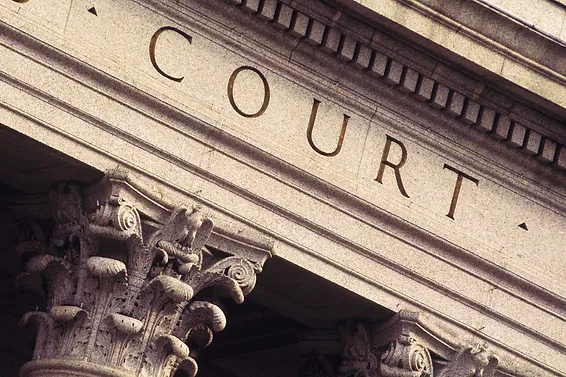Riley Gaines, the former University of Kentucky swimmer, and 18 others filed suit against the University of Georgia system (and various individuals) (collectively “Georgia”) and the Georgia Tech Athletic Association (“Georgia Tech”) asserting that the NCAA’s policies related to transgender athletes from 2022-2025 violated Title IX and the Fourteenth Amendment of the United States Constitution.
A. Georgia and Georgia Tech
In April 2025, the Governor of Georgia signed the Riley Gaines Act, which prohibits Georgia colleges and universities from participating in competitions where biologically male athletes are permitted to compete against biologically female athletes. Georgia and Georgia Tech both argued that the codification of the Riley Gaines Act mooted any claims for prospective injunctive or declaratory relief against them. While a defendant’s voluntary cessation of allegedly unlawful conduct ordinarily will not suffice to moot a case, a defendant can show mootness if subsequent events made it absolutely clear that the allegedly wrongful behavior could not reasonably be expected to recur. A government defendant can often meet that burden by formally rescinding a challenged policy because governments are more likely than private defendants to honor a professed commitment to changed ways.
The Riley Gaines Act is “precisely the kind of government voluntary cessation” contemplated by relevant case law as stated by the Court. The language of the law is clear, and it was plainly designed to prohibit exactly the conduct Plaintiffs complain of in the present litigation. The Court stated neither Georgia nor Georgia Tech are reasonably likely to ignore the unambiguous language of Georgia’s new law. The Court concluded that Plaintiffs have failed to show a reasonable expectation that Georgia or Georgia Tech are likely to reverse course in the future and, therefore, Plaintiffs’ claims seeking prospective injunctive and declaratory relief against Georgia and Georgia Tech are mooted by the Riley Gaines Act and dismissed.
Next, Georgia and Georgia Tech argued that Plaintiffs lack standing under Article III of the United States Constitution because the injuries alleged are neither traceable to Georgia or Georgia Tech nor redressable by judgment against Georgia and Georgia Tech. The Court stated Plaintiffs’ claimed injuries relate solely to having to compete against and share locker rooms with Lia Thomas. The particular building (facilities at Georgia Tech) being used for the competition is not the cause of these alleged injuries. Plaintiffs failed to point to any terms in the NCAA’s agreement with Georgia Tech or any action by Georgia that would tie Georgia or Georgia Tech to the NCAA’s decisions regarding which athletes were eligible to compete or which locker rooms they would be permitted to use. The Court concluded that Plaintiffs’ alleged injuries are not traceable to Georgia or Georgia Tech, Plaintiffs lack standing to proceed against them, and those claims were dismissed.
B. NCAA
Plaintiffs allege that the NCAA “runs educational programs or activities receiving direct or indirect financial assistance” and, therefore, must comply with Title IX. Plaintiffs focused on financial assistance through the NCAA’s concussion research “partnership” with the Department of Defense. Plaintiffs alleged that under the “partnership” with the Department of Defense that the NCAA received at least $85 million in funding from the federal government for large concussion studies with 37,000 student-athletes and changes to the NCAA’s rules. The NCAA argued that these allegations, without more specific information about whether the NCAA itself receiving the funds or otherwise control of the funds, are insufficient to show it is a recipient of federal funds.
Taking all of Plaintiffs’ allegations as true and construing all reasonable inferences in Plaintiffs’ favor, as is required, the Court concluded that Plaintiffs’ Title IX claims against the NCAA can continue. The Court further stated there is at least a plausible allegation that NCAA research was either directly or indirectly funded by a department of the federal government and that the NCAA either directly or indirectly plays a role in deciding how those funds are used. Therefore, the NCAA’s motion to dismiss on this point was denied.
Next, the NCAA asserted it is not a state actor, thus constitutional claims cannot be asserted against the NCAA. The United States Supreme Court decision in Tarkanian held the NCAA is not “entwined” with any one state like the Tennessee Association described in Brentwood. The Plaintiffs argued like Tarkanian did that UNLV delegated its own functions to the NCAA, “clothing the [NCAA] with authority both to adopt rules governing UNLV’s athletic programs and to enforce those rules on behalf of UNLV.” The Court stated much like UNLV’s decision to follow the NCAA’s rules did not transform the NCAA’s rulemaking into state action, all of the schools that participated in the 2022 Championships did not transform the NCAA policy on transgender athletes into state action. Plaintiffs’ argument that the NCAA is a “stand in” for, effectively, every state in the country, does not pass muster under the United States Supreme Court’s decision in Tarkanian. Accordingly, the Plaintiffs’ 1983 claim and right of bodily privacy under the Fourteenth Amendment to the United States Constitution were dismissed.
For any questions, feel free to contact Christian Dennie at cdennie@denniefirm.com.




